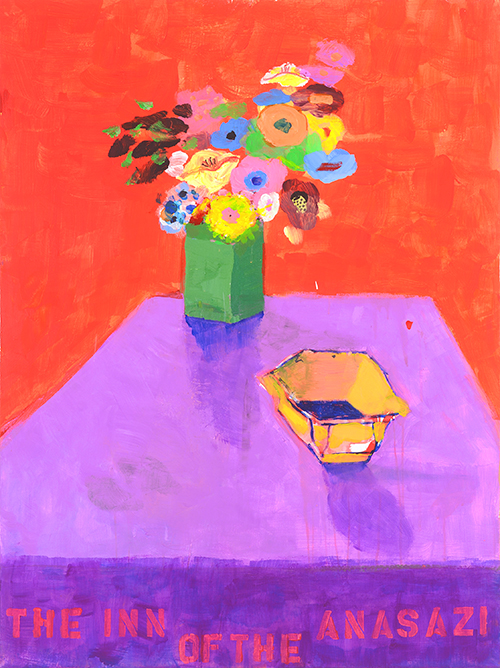The journey of an artist comes with many twists and turns. Opportunities and challenges arise throughout artists' careers, creating pathways to take charge of their future in the arts. For Patricia Zinsmeister Parker, this has meant exploring different painting techniques, defying gender inequalities in the art field, and balancing an artistic career with raising a family, among many other achievements.

Since her beginnings attending Saturday art classes at the Cleveland Institute of Art as a child, she has forged a successful path as a professional artist and is a proud alumna of the 91˛Öżâ School of Art. In this interview, Patricia reflects on how her decades-long career progressed and bloomed into a rich and diverse profession.
Q: You have been working as an artist for a long time, and your interest in art began when you were a child. How has your approach to your work changed over the years, and are there any future projects you are looking forward to?
A: Iâve been at this game for many decades and art has not only shaped my life experiences but also the way in which I perceive the world. I could never say that I chose to pursue art but rather that art chose me. My paintings and prints have evolved over the years, which has to happen if one seeks to grow as an artist. The apogee of my early career came in 1976 when I discovered a fresh and original approach to painting which came to be called ââBad Painting.ââ It is funny and moving, and often serves as a rejection of the standards of âgood taste.â As far as current projects, I am having my second exhibition in NYC this fall at the Painting Center, and a group show titled, Nevertheless, She Created at the Bonfoey Gallery in Cleveland, Ohio in March of this year.
Q: Tell us about your experience being the only female painter represented in the Cleveland Museum of Artâs âThe Invitational: Artists of Northeast Ohioâ exhibition in 1991. How have you observed changes in gender representation in museums throughout your career as an artist?

Q: is an archival facility and regional museum that preserves representative bodies of work created by Ohio visual artists. What was it like being a founding member of the Artist Archives of the Western Reserve, and what do you think about where the organization is at now? In your opinion, how does an organization like this help to support local artists?
A: I take great pride in how the organization has grown into a viable source of support for the local art community. We cannot talk about the Archives without applauding the efforts of renowned sculptor, Dave Davis, who had this vision of preserving artwork for posterity. The natural accumulation of artwork over time and what to do with it is a pressing worry for most artists. The Archives offers an opportunity to solve the problem. So many artists have taken advantage of being able to archive their art so that in the future, curators can review individual careers and create public exhibitions based on the archived art. Thank you, Dave!
Q: You did an independent study at the Instituto de Allende in Mexico. Do you have some interesting stories from this experience? Why did you choose to pursue this opportunity to study in another country?

Q: Your work is included in corporate and private collections, and you have been featured in many exhibitions. How would you advise other artists and art students to promote their work?
A: My advice is to ââjust keep at it,ââ which was the admonition given to me many years ago by Professor Tom Lehnert. I didnât understand what he meant at the time but now I do! Actually, his advice has served me well. Just keep at it! Perseverance is what separates the dilettante from the dedicated, long haul student. Regarding my paintings being acquired by corporate institutions, I am pleased to have my work in numerous private and corporate collections including major universities and museums in Ohio. In 2018, The Cleveland Museum of Art acquired The Yellow Table for their permanent collectionâ one of my âbad paintingsâ! I am also honored to have my work in the permanent collection of my alma mater, 91˛Öżâ.
Learn more about Patricia

Images - Paintings and drawing by Patricia Zinsmeister Parker, courtesy of the artist.
Bottom image - From the 91˛Öżâ School of Art Collection and Galleries,
"Alice" - Acrylic on Canvas, 108" x 72" (2010) By Patricia Zinsmeister Parker, The Director's Choice, Canton Museum of Art, 2011 -- Title of the suite is ''Hommage Les Peintres Femmes."